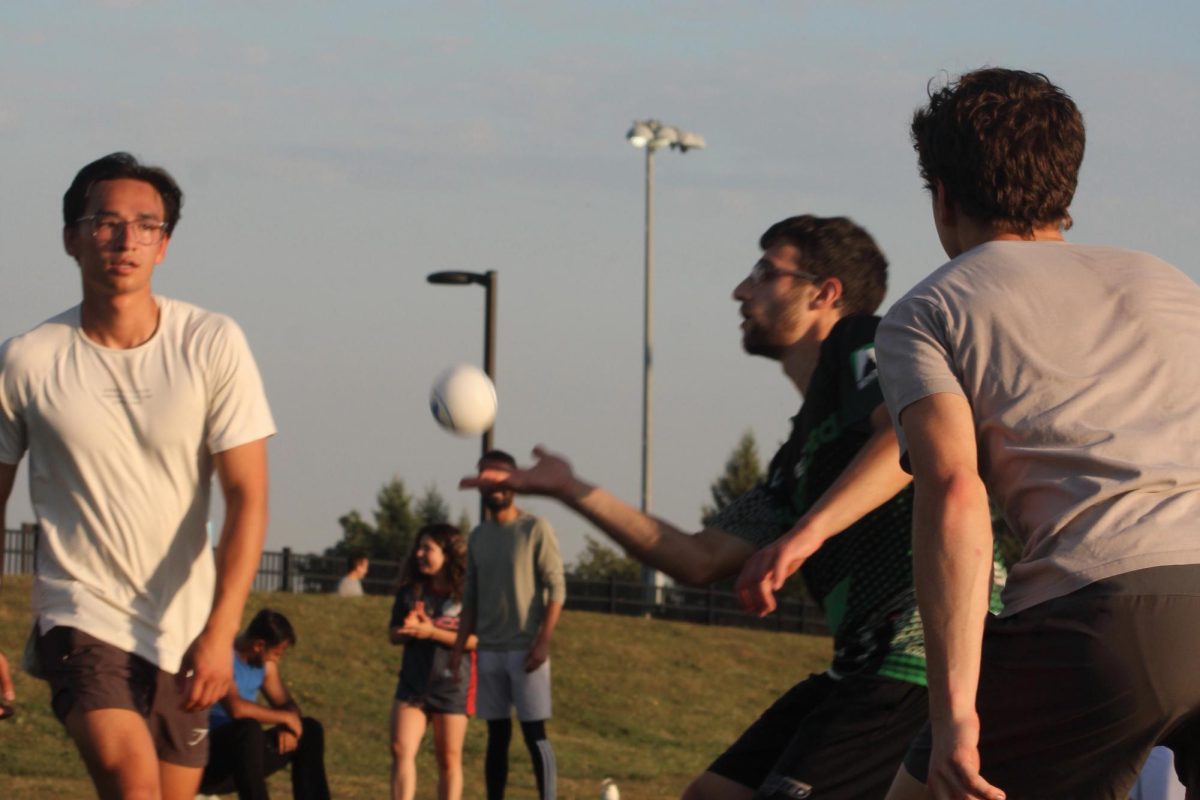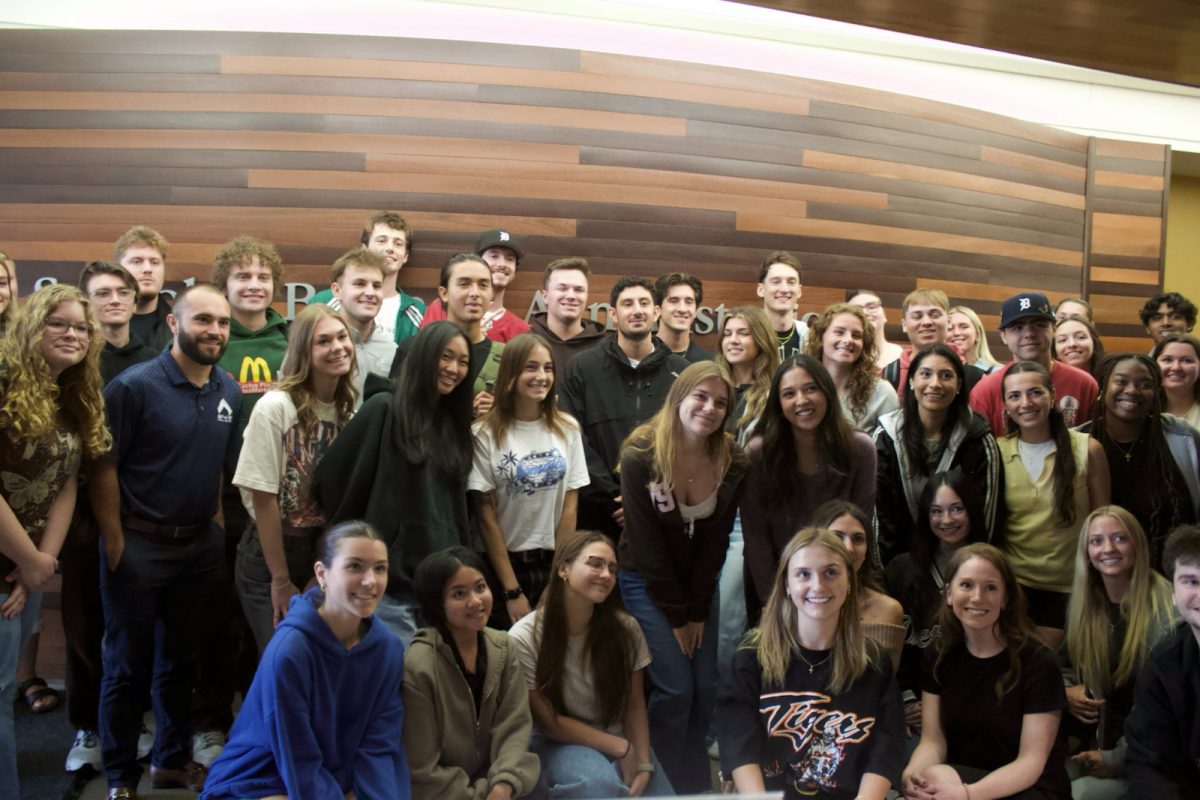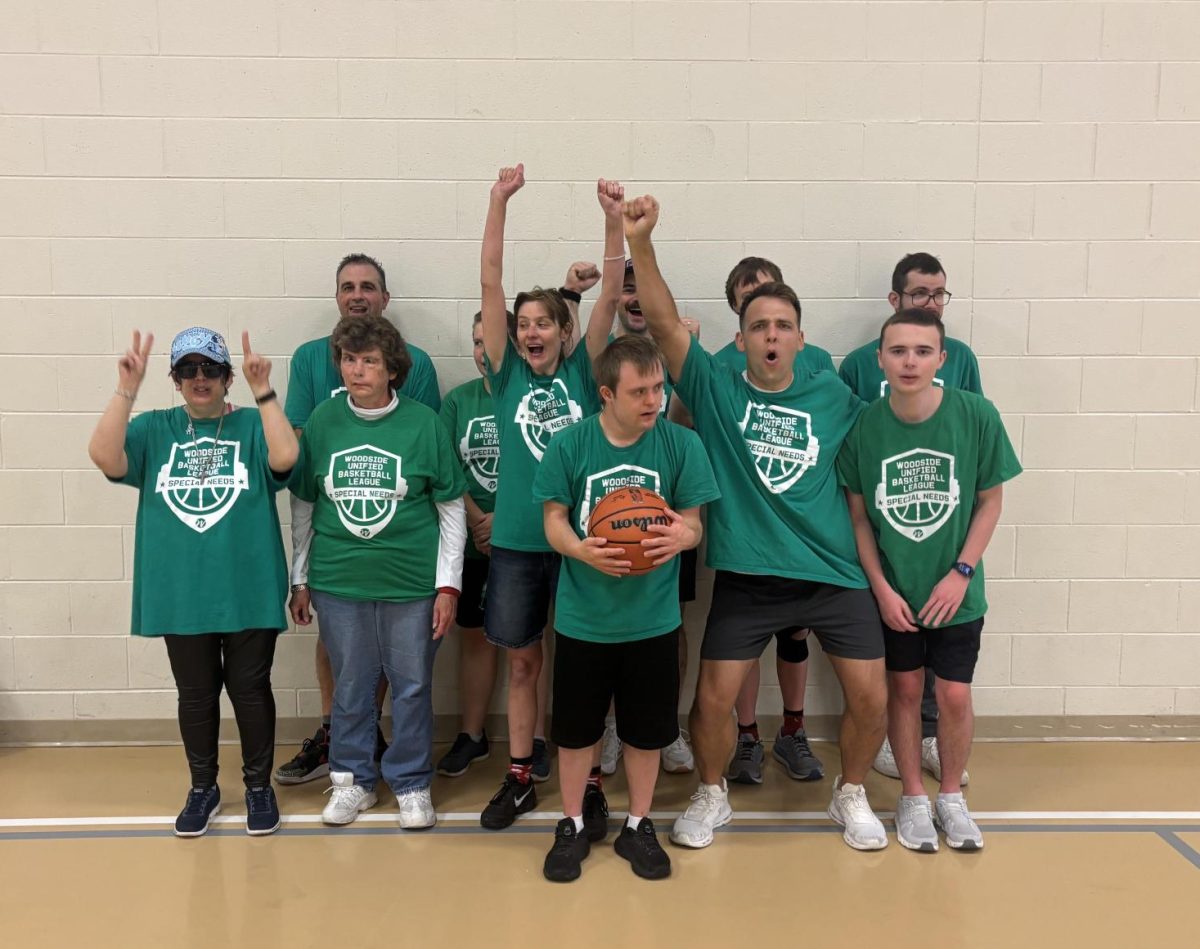Dr. Gerard Madlambayan, professor and chair of the Department of Biological Sciences, shares his research interests in cancer and stem cell biology at Oakland University.
After pursuing a chemical and biomedical engineering degree, Madlambayan continued working on bioreactors, product development and testing in the industry.
“What inspired me to do research was my experience in the industry and what developed my research interests in graduate school,” Madlambayan said. “My lab is now involved in understanding how tumor microenvironment affects cancer progression in responses to therapy.”
He explained that cancer cells take advantage of normal cells, process their growth and evade therapy. The lab now works to develop treatment strategies to stop this.
“One project we are focusing on is finding better ways to get rid of adherence leukemia cells so when we treat someone it doesn’t come back,” Madlambayan said. “We are also focusing on lung cancer to show how tumors regrow.”
Madlambayan explained his research defines the roles of the different stem cell populations in cancer progression and relapse, aiming to find a developed strategy to treat the diseases.
The collaborative effort within the lab requires graduate students to have their own individual thesis or dissertation projects while the undergraduates assist them by developing their side projects.
“The graduate students take leadership on research projects by learning how to train students and oversee what they do as they are going to be future scientists,” Madlambayan said. “I prefer to take undergrads when they are entering their junior year as they have a good foundation of knowledge before coming into the lab.”
“I expect undergraduates to become independent in the lab but be able to develop hypotheses and analyze the experiments or data to present it to the rest of the team,” Madlambayan said. “Students should understand the entirety of their projects and why certain techniques work.”
The lab strives to pursue specific and individual projects to further publish abstracts and publications by consistent attendance of presenting work at conferences.
Madlambayan emphasized the importance of external funding from the National Institutes of Health (NIH) and the National Science Foundation (NSF) to support his studies and students at OU.
Internal funding, such as the Provost Award, has also supported his students and many other students across campus in doing research within OU laboratories on campus.
“OU has given me the infrastructure to do my research but there are a lot of opportunities here for undergraduate students and internal funding,” Madlambayan said. “I come up with ideas and write the grants to get funding that will support students to do research in my lab.”
The lab works to further develop alternatives to treat leukemia and lung cancer and continues to pursue stem cell research.
“I’ve been involved in two clinical trials that have gone into patients and that’s something we’re working to do at OU as well,” Madlambayan said. “I will continue to focus on the role of mitochondria transfer in cancer.”
Madlambayan highlighted the importance of gaining research experience for future graduate school success by sharing numerous campus opportunities for student involvement.
For more information about joining Madlambayan’s laboratory, contact [email protected].






